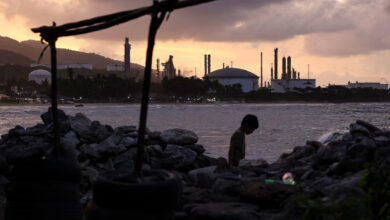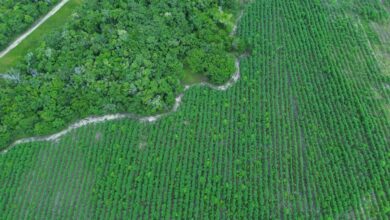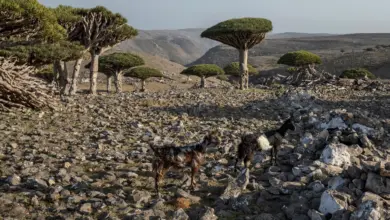Sharm el-Sheikh–George Burgess, the leading US expert investigating recent shark attacks in the Red Sea resort city of Sharm el-Sheikh said that reaching a definitive conclusion on the cause of the attacks may take years.
The attacks claimed the life of a German tourist last week.
In an exclusive phone interview with Al-Masry Al-Youm, Burgess, director of the Florida Program for Shark Research and director of the International Shark File, said the recent attacks are the most unique he’s seen in more than three decades.
Al-Masry Al-Youm: How long have you been here and what have you been doing?
George Burgess: We got here Sunday and have been working on the investigation regarding these shark attacks since. At this point we are gathering data and looking at the circumstances under which they had happened.
Al-Masry: How has the investigative process been going so far? Have you found it easy dealing with the governorate of South Sinai?
Burgess: So far we have been given everything we asked for and they have done it quickly. It seems like they are eager to reach a resolution with this topic. The only thing I would say regarding the date that could have been done better has to do with some of the medical records. The photographs of the bite marks on some of the victims were maybe taken from angles and in ways that were not the best for me.
Al-Masry: How abnormal is the case of these Sharm attacks in your opinion?
Burgess: It is a highly abnormal situation. I’ve been involved in studying sharks and shark attacks for a long time and in 30 plus years of experience I must say this is the most unique situation I have seen. For so many attacks to happen in such a short period of time, I don’t think I’ve seen it.
Al-Masry: What were your initial thoughts or suspicions regarding the cause of these attacks?
Burgess: Look, science is not black and white. It is not like other situations in life, where you can trace problems to their root with one process and be finished. There are so many factors regarding human behavior, animal behavior, and environmental circumstances. There are a lot of things that came to mind, but it will be a while before we reach any conclusions.
Al-Masry: How long will it take?
Burgess: It could take a long time to actually figure out what happened. The governor [of South Sinai], however, gave us a small period of time because he understandably wants to begin taking measures to protect the people in his governorate. The most similar situation I’ve been involved in was in Brazil a while back, and it took us ten years to figure out something conclusive. Brazil was similar in scope and we also had the same problem with the lack of prior research.
Al-Masry: Do you think that the anomaly seen with these attacks is an indication of a natural or human glitch elsewhere?
Burgess: When you have this many attacks in this short period of time, there is no questioning that something must have happened to incite this. Like I said, this is a highly unusual case, and it is extremely unusual behavior for sharks.
Al-Masry: What are some of the factors that you think might have incited these attacks?
Burgess: From a natural perspective, Sharm has had an unusually warm summer and that might have affected the behavior and movement of sharks. It could also have had an adverse effect on marine life and water salinity. But the event that stands out for me at this point is the company that dumped all those sheep carcasses overboard a couple of months ago. That was sure to have altered the behavior of sharks, and given them a source for food that they weren’t used to on the surface of the water. That probably fed some sharks for a while and altered their feeding habits.
Al-Masry: What has been your main drawback in conducting your investigations so far?
Burgess: There is very little biological information currently available about shark movement in the Red Sea. Not enough research has been conducted on the topic, and it’s difficult when you don’t know what an animal’s patterns are in the area you’re studying. I certainly hope that after this situation is over we will be able to tag some sharks and get some more research done in the area.
Al-Masry: Have you been working with Egyptian experts and scientists?
Burgess: Yes, I have been working closely with a few Egyptian scientists who have been more than generous in knowledge and hospitality. I hope to continue working with them in the future.
Al-Masry: Do you think then, that after handing in your report on Saturday that you will continue conducting your research until you reach something conclusive?
Burgess: I certainly hope so.




